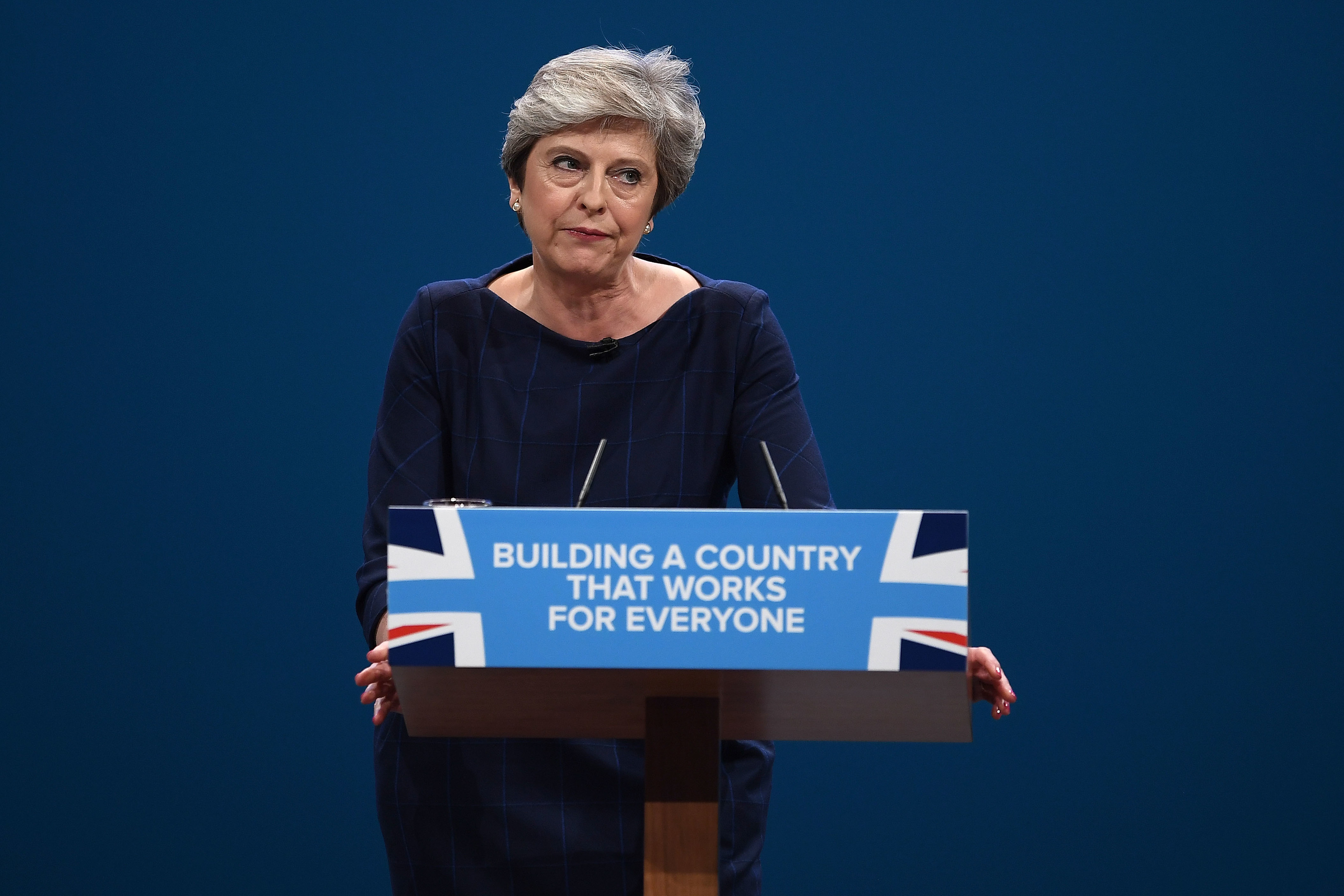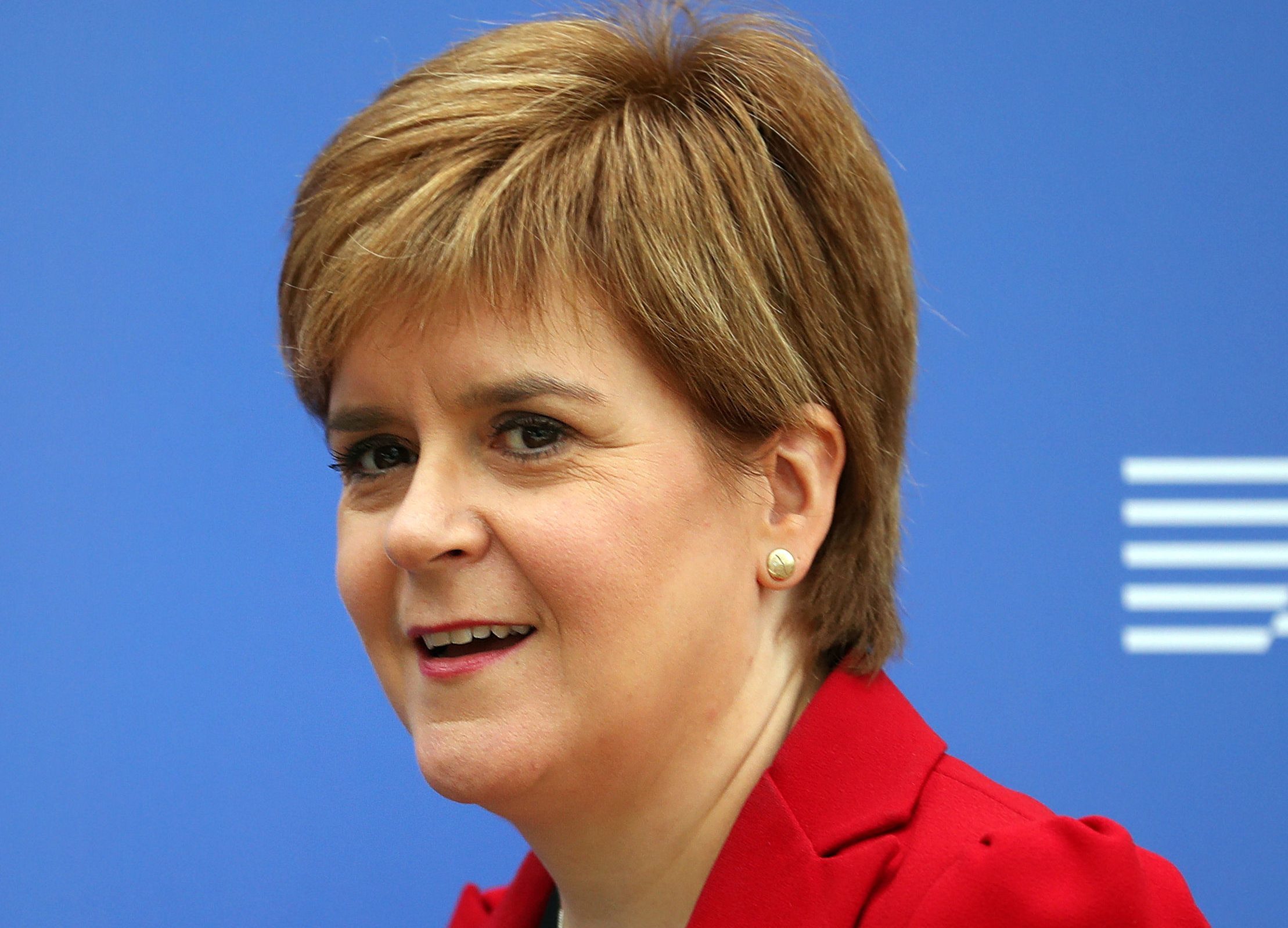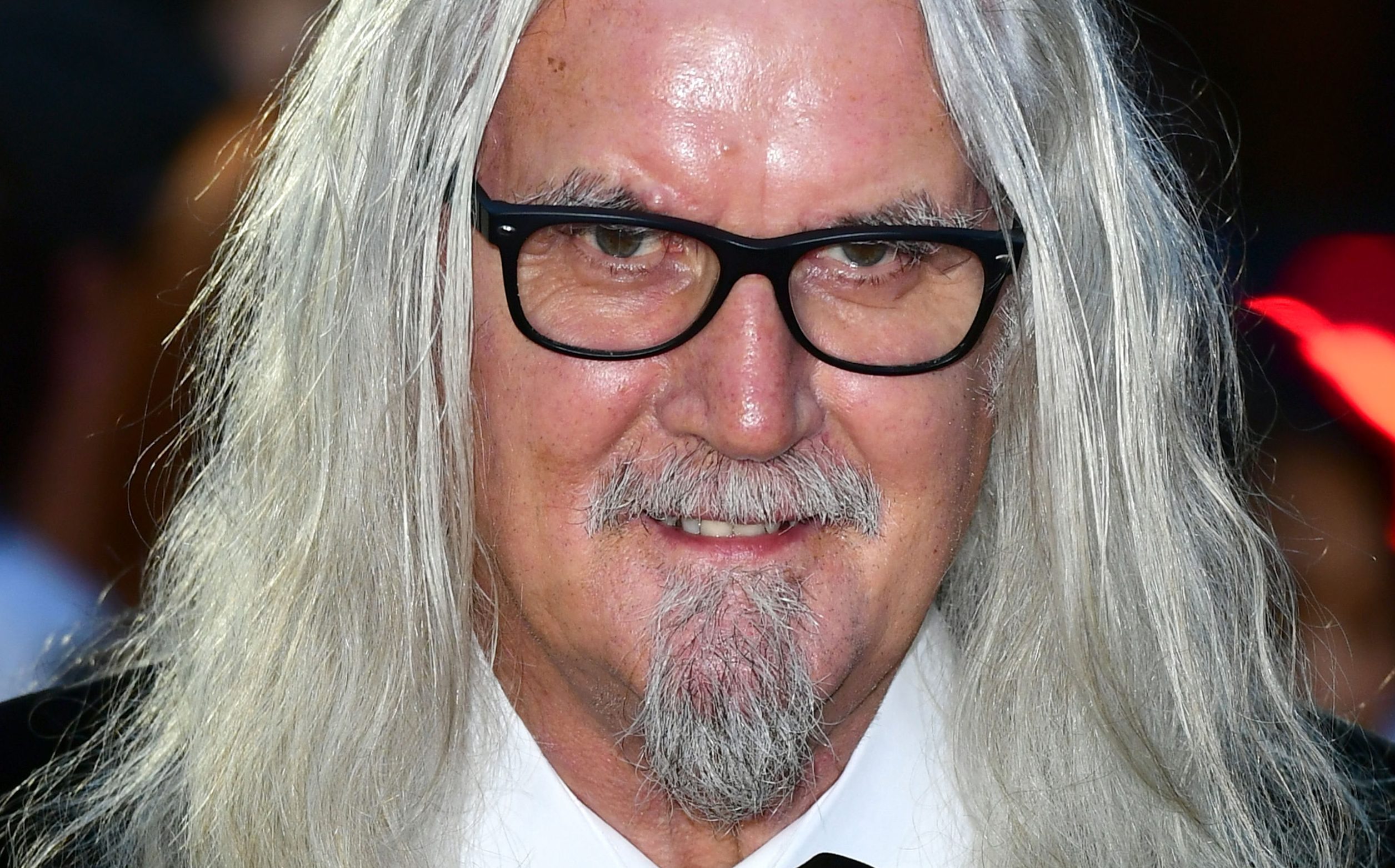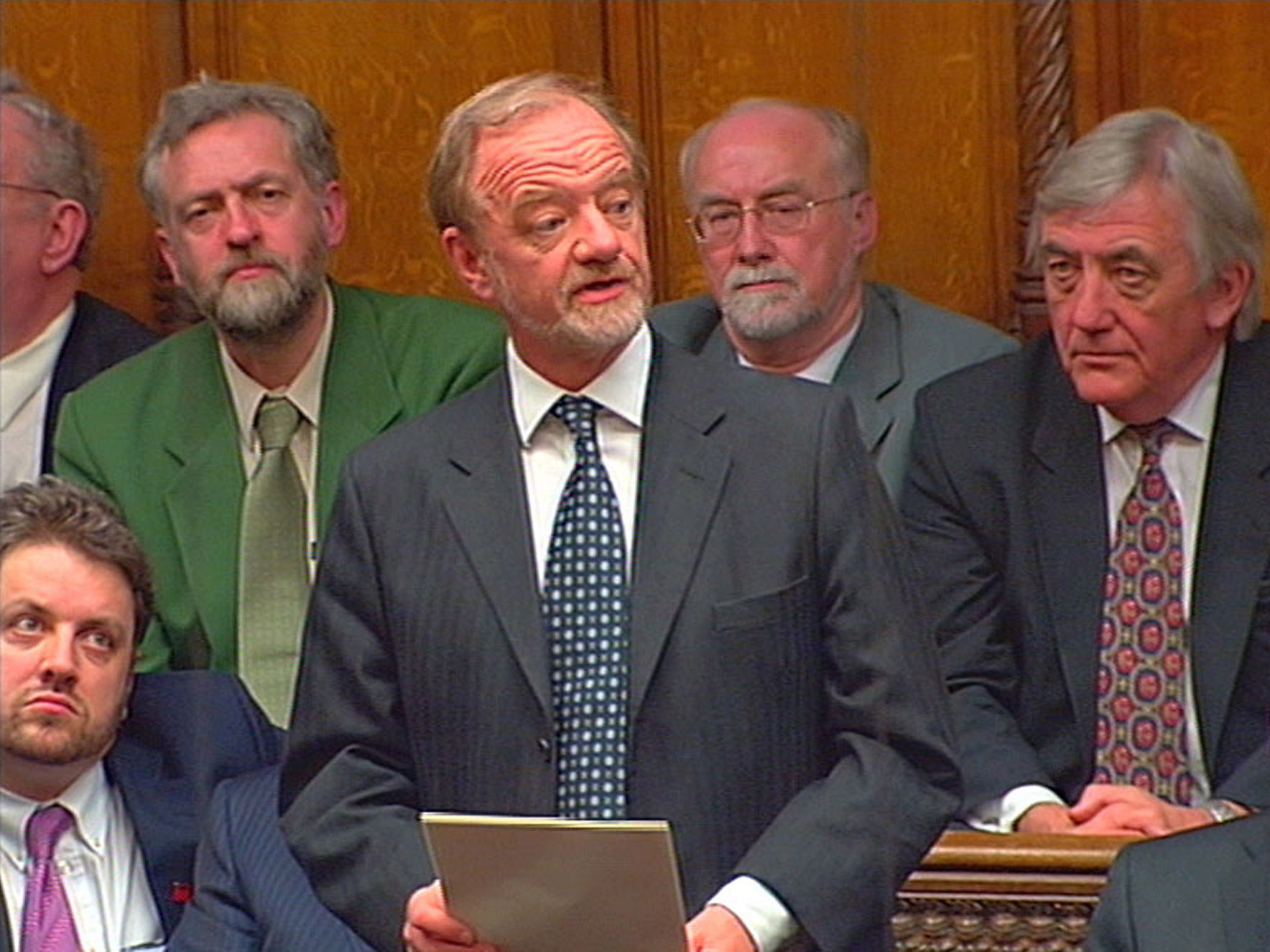
IT will go down in history as one of the most disastrous party leader’s speeches.
The P45-wielding prankster was bad, the coughing didn’t help, and the cascade of letters falling off her backdrop was the final humiliation for Theresa May in Manchester.
Yesterday, as the Prime Minister recovered from her cold and her worst speech, Nicola Sturgeon is preparing for one that she knows must be among her best at the SNP conference.
It promises to be among the trickiest and most important speeches of her career as she addresses her party’s faithful still reeling from a bruising at the General Election and an unspoken but persistent retreat from the promise of another independence referendum.
Yesterday, one of Britain’s most adept political speech writers offered a few tips to the First Minister before she hits the podium.
Philip Collins, who wrote many of Tony Blair’s most successful orations, recommends being honest and upfront about what has gone wrong – and if possible, crack some good jokes early on.
It is not surprising advice from the expert who reckons Scotland’s greatest orator is… Billy Connolly.
Ms Sturgeon will take to the stage at Glasgow’s SECC just six months after telling her supporters: “There will be an independence referendum.”
She went on to lose 21 of her MPs in June’s General Election and ditched independence with a “reset” of the timetable set out for a second vote.
Mr Collins, who has crafted speeches for a host of senior politicians and business leaders, says the SNP boss must echo her Tory counterpart in one way and acknowledge things are not going according to plan.
The writer and academic said: “Whatever she says about it there has been a retreat, there is no doubt about it.
“And how you deal with that rhetorically is always very interesting.
“I would always be inclined to be reasonably honest about it because the troops will know if she is simply giving it soft soap. You have got to respect your audience and their intelligence and they know the truth.
“So gently acknowledging it I think is the best way of doing it.
“Theresa May’s equivalent was where she apologised for the election campaign. I thought that was a bit hard on herself as I don’t think it was entirely her fault, but she did at least acknowledge it and confront it and I think Nicola Sturgeon has to do something like that.”
VIDEO: Comedian Simon Brodkin ejected from Conservative conference after handing Theresa May a P45
He added: “Nicola is generally pretty good at being deft and getting through those things. If she soldiers on and pretends this was the plan all along it will go down quite badly.”
Mr Collins says the First Minister must address difficulties early to stop them from overshadowing the rest of her speech.
He said: “You can concede more in a joke than you can if it’s not a joke because the audience quite weirdly both do notice the concession and they don’t. They don’t regard it as a weakness.”
But he added: “You can’t have some prefabricated joke that is like a Bob Monkhouse gag or something. It has got to come naturally out of the writing and if one doesn’t come naturally out of the writing, don’t do one.”
So who should the First Minister take inspiration from?
“There is no finer rhetorician than Billy Connolly,” Mr Collins said.
“Stand-up comedy is a form of public speaking and Connolly is the best.”
Mrs May’s shambolic address brought a sympathetic reaction online from Ms Sturgeon. She tweeted: “Spare a thought for those of us still to deliver our conference speech and now fretting about all the things that could go wrong.”
And Mr Collins insists the First Minister can take advantage of the Tory leader’s nightmare – by being nice to her.
He said: “It’s an opportunity for her to be quite a sympathetic person and say something nice about Theresa May rather than the usual political knockabout.
“Exactly along the lines of that tweet, which is to say: ‘We are all in the same boat and I do feel for you on that, even if on your politics I don’t like you.’
“That would be a nice touch.”
But while he too had sympathy for the PM’s public humiliation, Mr Collins argued at least part of it was of her own making.
He said that Mrs May’s refusal to use an autocue, instead constantly looking down at a printed script, put added strain on an already hard-worked voice.
“I’m not saying it would definitely have stopped that from happening but she’s certainly at more risk of that happening than anyone else because of her style of delivery,” he added.
Philip’s new book, When They Go Low, We Go High, explores how the most famous speeches in history have worked, including analysis of their rhetorical tricks.
And he believes that some of the most impressive speakers, particularly in the Labour Party, have come from Scotland.
Indeed, he has particular affection for Robin Cook’s 2001 “Chicken Tikka Masala” address. Why? He met his wife there.
The then-Livingston MP, who died in 2005, argued the curry “is now a true British national dish … chicken tikka is an Indian dish. The masala sauce was added to satisfy the desire of British people to have their meat served in gravy”.
Mr Collins also highlighted the former Foreign Secretary’s Iraq War speech, where he quit Government because of his opposition to the invasion, and his address on the Scott Report into arms sales.
“He was locked in a room with this report and he had about three hours to digest it and then do a speech in Parliament. It was absolutely magnificent. That was an absolute classic.”
Former Prime Minister Gordon Brown’s eve-of-election rally cry in 2010 was also a personal favourite, despite the Fifer heading for defeat.
Mr Collins said: “He had realised he had lost so he kind of didn’t care any more and he did an old fashioned tub-thumping speech and it was actually amazing. He was capable of a really fine speech of a type we hadn’t seen before.
“Keir Hardie as well – some of his speeches are really worth reading.
“Ramsay MacDonald was a brilliant speaker. A lot of the Labour Party’s great speakers have been Scottish.”
Mr Collins thinks the most effective speeches are centred on a singular argument that runs through the entire delivery.
“The last Blair speech I did was 2006,” he said. “The actual argument of that speech was all about globalisation and it’s really contemporary.
“We had noticed lots of people were already saying they weren’t getting anything out of globalisation, they were being left behind, they didn’t feel anything was working for them, which feels very 2017.”
The best Scots speech ever? Robin Cook on chicken tikka
Philip Collins’ favourite speech by a Scottish politician is one Robin Cook delivered to the Social Market Foundation on April 19, 2001.
It covered three main themes, which are still major issues 16 years later: multiculturalism, European integration and devolution. Here are the key moments:
“Chicken tikka masala is now a true British national dish, not only because it is the most popular, but because it is a perfect illustration of the way Britain absorbs and adapts external influences. Chicken tikka is an Indian dish.
“The masala sauce was added to satisfy the desire of British people to have their meat served in gravy.
“Britain has everything to gain from being a leading partner in a strong Europe.
“All we have to lose is the timidity which prevents us from embracing our European destiny and from recognising that it is a source of confidence in our nation’s future.
“Our people… watch Scotland, England, Wales or Northern Ireland at football. They cheer for the British team in the Olympics.
“And they support Europe at golf in the Ryder Cup. In context, each is a valid expression of our identity.
“Identity is not a finite substance to be shared out between competing loyalties.
“It embraces numerous dimensions, each of which serves to amplify and reinforce the others.”

Enjoy the convenience of having The Sunday Post delivered as a digital ePaper straight to your smartphone, tablet or computer.
Subscribe for only £5.49 a month and enjoy all the benefits of the printed paper as a digital replica.
Subscribe


